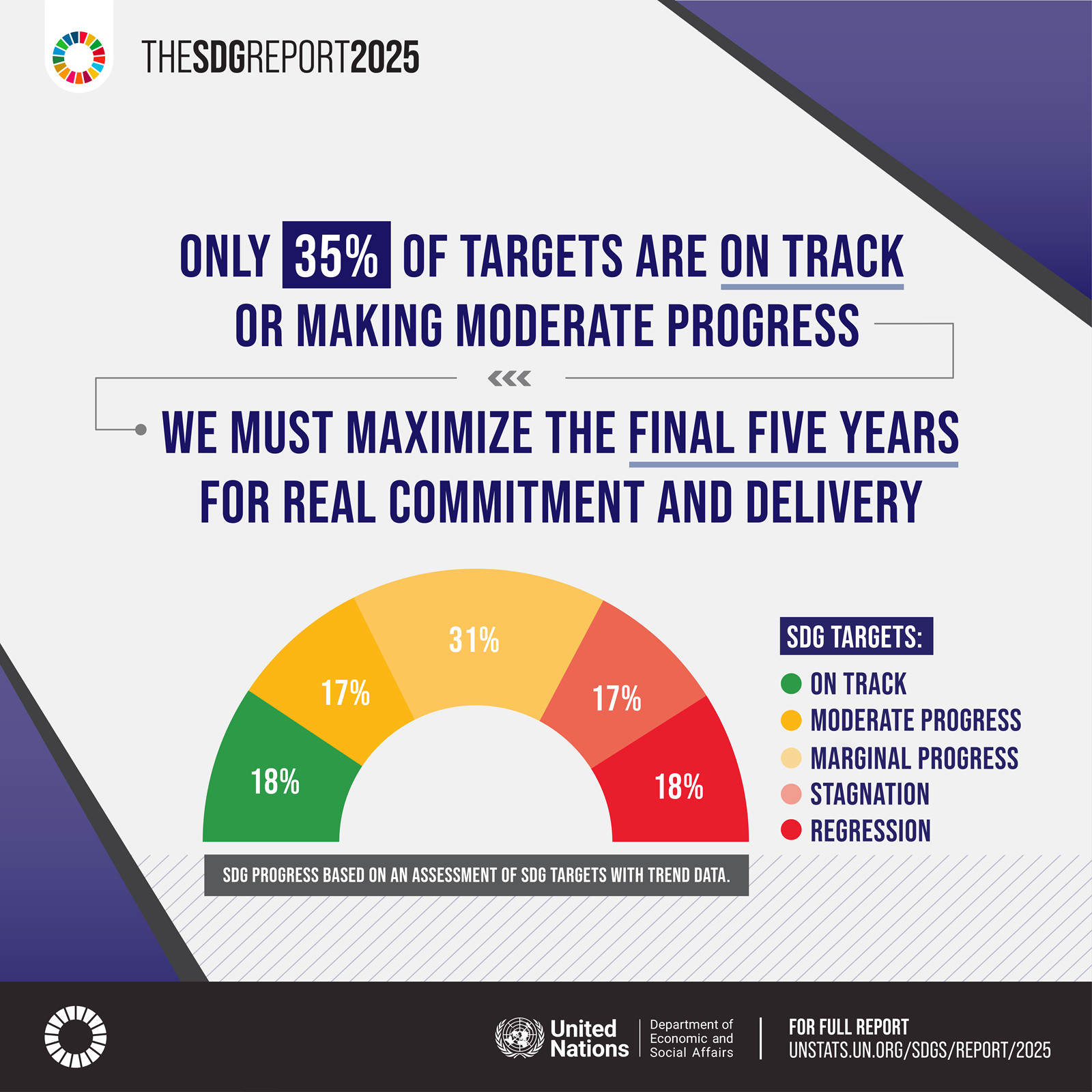What legacy does it leave behind with respect to access to affordable, reliable, sustainable and modern energy for all?
The SDG Summit 2023 that took place on 18-19 September 2023 in New York was clear that world remains woefully off track to achieve the Sustainable Development Goals, with development challenges compounded by COVID-19, armed conflict, geopolitical tensions, humanitarian crises, and the triple planetary crises of climate change, biodiversity loss, and pollution.
Similarly, the Special Edition of the Sustainable Development Goals Report 2023 warns that while lack of progress is universal, it is the world’s poorest and most vulnerable who are experiencing the worst effects of these unprecedented global challenges. It also points out areas that need urgent action to rescue the SDGs and deliver meaningful progress for people and the planet by 2030.
It is a hard fact that in 2023 - the mid-point of the implementation of the UN 2030 Agenda for Sustainable Development, the picture on progress since the adoption of the Agenda in 2015 is mixed. SDG target 7.1 on ensuring universal access to affordable, reliable, and modern energy services is off track, with an estimated 675 million people still without access to electricity and 2.3 billion without access to clean cooking in 2021. Current trends suggest that the world’s shot on the target will fall very wide of the mark in 2030.
Furthermore, The SDG 2023 Report notes that International public financial flows for clean energy in developing countries have declined consistently, even before COVID-19.
At the launch of the African Women Clean Cooking Support Programme (AWCCSP) on the sidelines of COP28 in Dubai last year, the President of the United Republic of Tanzania Samia Suluhu Hassan said 80% of households in sub-Saharan Africa rely on wooden biomass for cooking. She said, “Women and girls are disproportionately affected when there is no access to clean cooking solutions. Exposure to toxic fumes affects their health and well-being,” and that the programme will ensure the long hours they spend fetching firewood, are spent on productive economic activities.
President Suluhu said cooking with wooden biomass accelerates deforestation. “This has led to the loss of 3.9 million hectares of forest between 2010 and 2020 in Africa,” she said and pointed out that while access to clean cooking had increased across the world, in Africa it is the use of wooden biomass that is growing.
At this event, Dr. Akinwumi A. Adesina, President of the African Development Bank said, “300,000 women and 300,000 children die every year due to respiratory diseases because of simply trying to cook a meal—what is taken for granted in developed economies.” Adesina said the global economic cost of women’s hours spent fetching firewood is estimated at $800 billion annually and the health cost for that is estimated at $1.4 trillion annually. “The risk of women dying from a lack of clean cooking solutions is three times higher than the risk of dying from malaria.”
It is therefore important that the first ever UNGA Sustainability Week goes an extra mile to brighten the future for the thousands of women and children who are currently victims of lack of clean cooking solutions. Scaling up diffusion of clean cooking solutions and options is something that should have been done yesterday – but calls for increased finance and other means of presentation.
As we noted at International Day of Clean Energy, it is also important to pursue and speed up inclusive clean energy solutions where there glaring gaps exist, for example in sub-saharan Africa.
It is correspondingly important to note that there are inherent dividends in having a sharp progress towards SDG 7, as it is inextricably linked to other SDGs, including poverty eradication, food security, health, education, prosperity, gender equality, employment, transport, ocean, clean water and sanitation, as well as gender equality and the empowerment of women, youth and children.


No comments:
Post a Comment